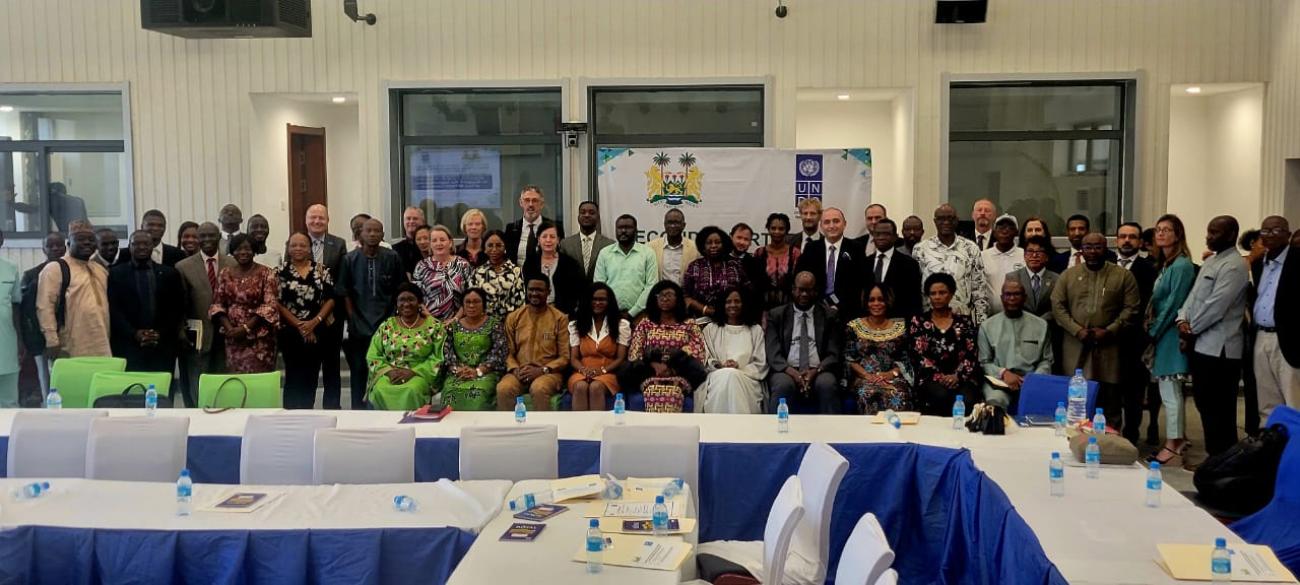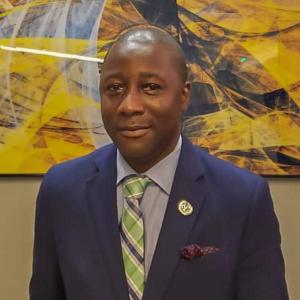In her first ministerial Development Partnership Committee (DEPCAC) meeting since she assumed office as UN Resident Coordinator (RC) to Sierra Leone last Thursday, Seraphine Wakana assured development partners of the UN Country Team's commitment to working with the Government to realise the Big 5 game changers and enablers of the Medium-Term National Development Plan (2024-2030).
DEPAC, held every quarter at the Ministerial level, brings together development partners and the Government to discuss development priorities around the new plan. Normally, a Presidential DEPAC chaired by the President of Sierra Leone is held in the last quarter, though he can call for an ad hoc meeting when he deems it fit.
In her convening role as co-chair, which she shares with the World Bank Country Manager Abdou Muwonge and the Minister of Planning and Economic Development (MoPED) Kenyeh Barlay, Seraphine Wakana said that the commitment will be made by working through the Sector Working Groups and all other structures of the Plan. She emphasised that Coordination, information sharing, and accountability are crucial to our successful cooperation.
The DEPAC was held at the Foreign Service Academy under the theme 'Alignment and Realignment to support the implementation of the MTNDP 2024-2030.' Ms Wakana said that the Government's speedy drafting and launch of the new Plan was a vital step towards coordinated action and signalled its commitment to achieving transformative change, sustainable progress, and inclusive development.
"The National Plan is not merely a document but a blueprint for action – a vehicle for galvanising and organising meaningful cooperation between Government and Development Partners," she said.
According to the RC, translating the vision contained in the Plan into tangible actions requires not only commitment by the Government and partners but also strategic planning at the sector level, realistic costing and prioritisation, well-functioning coordination mechanisms, clear communication channels, and effective monitoring to continuously assess the progress of implementation.
She encouraged the Government to demonstrate strong leadership in all sectors and demonstrate the political will, commitment, and transparency essential for driving change and overcoming challenges.
The RC also acknowledged the implementation challenges to be overcome, including limited resources, capacity constraints, external shocks, and global uncertainties, which can significantly impact the ability to deliver the Plan.
"These challenges require that we commit ourselves to new and innovative ways of problem-solving, efficient collaboration, and continuous learning," she said.
In her opening remarks, Minister Kenyeh Barlay said there was a sense of urgency in Sierra Leone's whole planning process and emphasised the need to see how steps can be taken to move the implementation of the Plan forward. She also focused her remarks on the Plan's coordination, monitoring, and resourcing.
Manager Abdoul Muwonge discussed how the implementation of the MTNDP will evolve and lauded the Government for integrating and building on the previous Plan. He also praised the Government for developing a plan transcending the political cycle. He ended by stressing that the impact of the investment in the Plan must be tracked and that the efficiency of its implementation is crucial.
Minister Barlay also gave a presentation focusing on coordination, financing, monitoring, and evaluation with six framing questions.
The discussions moderated by the World Bank Country Manager centered around the above, including how stakeholders can align new and realign existing interventions with the MTNDP and effectively address trade-offs and what strategies promote mutual accountability among stakeholders for plan implementation.
The ministers of Technical and Higher Education, Social Welfare, Administration and Political Affairs, Basic and Senior Secondary Education, Fisheries and Marine Resources, Water Resources and Sanitation, the Deputy Ministers of Finance (2), Tourism, and Agriculture were in attendance.
Together with the Commissioner General of the National Revenue Authority, the Statistician General, and the Head of the National Monitoring and Evaluation Directorate, Government officials intervened on coordination, financing, and monitoring.
Key takeaways include operationalising the Plan, how it can be financed effectively, coordinating to avoid duplication, and effective means of monitoring and evaluating the milestones.
Other attendees included heads of UN agencies, ambassadors of the United States, Ireland, the EU Delegation, and the Secretary-General of the Mano River Union.














